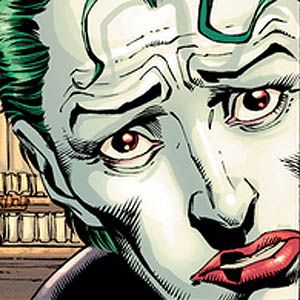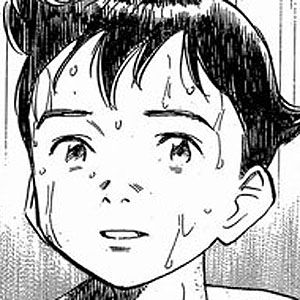Publishing | Van Jensen wades through Plantinum Studios' 2008 financial report and discovers ... pretty much what you'd expect: The troubled company is in debt, to the tune of $20 million. Platinum reports it is behind in rent, facing a handful of lawsuits and, and as Gary Tyrrell notes, unable to pay second-quarter royalties to clients of Wowio, the e-book publisher it purchased last year. [via Heidi MacDonald]
Publishing | David Welsh talks briefly with Elizabeth Kawasaki, Viz Media's senior editorial director, about the publisher's plan to serialize Rumiko Takahashi’s new manga Rin-Ne online for free as it's being released in Japan. [The Comics Reporter]
Publishing | Deb Aoki rounds up the mainstream-media reaction to Yoshihiro Tatsumi's autobiographical A Drifting Life. [About.com]
Creators | Neil Gaiman discusses his "love letter" to Batman, the two-part Whatever Happened to the Caped Crusader?, and the dreaded c-word -- continuity: "Continuity isn't actually something that I ever worry about. You use it where you need to, and you don't use it where you don't need to. It's a given that we exist in a world where we have to live in continuity every day; no one is immune to that, in life or romance novels. By the same token, it's not something I find terribly important." Warning: This link may contain spoilers for Detective Comics #853, which goes on sale today. [The Underwire]
Creators | Chris Claremont discusses his work on Marvel's X-Men franchise, his collaborators, and whether it would be possible in today's industry to stay on a title for 16 years: "I think if someone came along and their work on a title as writer or artist resulted in sales of half-billion copies an issue, I think the publishers would likely do whatever was necessary to sustain the writer and the book. The fact is, sales today are significantly less than that (half-billion copies per issue), so there is perhaps an incentive to keep rotating personnel just to juice the product. By the same token, there are a lot more perceived alternatives. If someone came along and scored that kind of sales impact in comics, the chances are they would try to move on to another medium as Neil Gaiman and Frank Miller have in film and books." [Mania]
Publishing | In case you were wondering, China's comic book of the moment is Tibetan Rock Dog, about a Tibetan mastiff named Metal who grows up in a Buddhist temple and pursues his dream of rock stardom. Written by Chinese rock star Zheng Jun, the comic's 100,000-copy first edition sold out "almost instantly." [People's Daily Online]
Creators | Brian Heater kicks off a three-part with cartoonist Box Brown. [The Daily Cross Hatch]
Creators | Becky Cloonan chats about Pixu, Demo, and the changing comics landscape. [Manga Punk]
Creators | Actor James Marsters, whom I didn't realize had worked on any comics, complains about his experience co-writing Dark Horse's Spike and Dru one-shot -- specifically, the way artist Ryan Sook drew the characters. Dark Horse's Scott Allie responds. [Splash Page]
Creators | C.M. Butzer talks about Gettysburg: The Graphic Novel, which includes an 18-page sequence devoted to President Lincoln's Gettysburg Address. [Graphic Novel Reporter]
Awards | The Random House blog Suvudu begins its "Eisner Shakedown," a category-by-category look at the Eisner Awards nominees, with the contenders for Best Cover Artist. [Suvudu]
Conventions | Kathryn and Stuart Immonen post a funny illustrated report from last weekend's FX International convention in Orlando. [Immonen Illustrations]
Manga | On Monday I linked to that handy chart comparing the characters in Naoki Urasawa’s Pluto to their counterparts in Osamu Tezuka’s Astro Boy story “The Greatest Robot on Earth." Now Xavier Guilbert points to its origin: His review of Pluto, which also features a panel comparison. [du9]
Industry | C.B. Cebulski suggests some websites where aspiring writers and artists can find each other. [Chesterfest]






